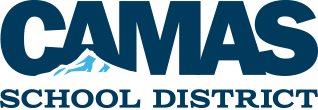In spring 2016, the Office of the Superintendent of Public Education in Washington adopted new health standards. Sexual Health Education is one of the six “core ideas,” and includes a strand focusing on gender/self-identity. The information below provides timelines, themes from the listening post, and next steps. The overarching goal of engagement with the topic of gender/self-identity is this: Create inclusive environments that ensure that each student experiences safety, belonging and care within a learning community. This includes students who are gender non-conforming and gender-questioning.
Timeline of Process
- Spring 2016: New Health Standards adopted by OSPI
- 2016-18: Professional learning for MS/HS health teachers
- May 2018: Student Wellness Advisory Council (SWAC) introduction and query
- July 2018: Board presentation – context and process
- October 2018: SWAC – deeper dive into Sexual Health Standards, including gender
- October 2018: Camas Community Equity Forum – context of Sexual Health Education & introduction of gender/self-identity
- December 2018: Camas CAC – context of Sexual Health education & introduction of gender/self-identity
- January 2019: SWAC – Protocol for Listening Post
- March 2019: Listening Post: presentation; comments, and resulting Q&A;
- April-May 2019: SWAC – Review Listening Post data & subcommittee review
- June 2019: SWAC – Recommendation/next steps to the superintendent;
- June 2019: Superintendent update to the school board
Listening Post
In March 2019, parents of secondary students were invited to learn about the new Sexual Health Standards and provide feedback on three lessons proposed to be taught in the eighth (one lesson) and ninth (two lessons) grades. Themes which arose at the Listening Post and via other feedback include:
- Appreciation for the overall process of the Listening post and review of the FLASH lessons focused on gender and identity.
- Agreement among the participants on the importance of teaching children to listen, empathize, and be compassionate.
- Recognition that the gender identity topic is a part of society and these issues are a part of the students’ environment and educating them on these matters is important to prepare them for the future.
- Concerns expressed on the appropriateness of the timing and/or location in which a student should learn about gender identity.
- Concern expressed for inclusion and respect for all sides of the gender identity issue.
- A desire for more information about this topic, including resource guides for use at home.
Next Steps
- A workgroup comprised of health teachers and counselors will use only the portion of the FLASH lessons that include vocabulary and replace the remainder of the lessons with activities that focus on the outcomes of empathy and belonging. (Work to be completed by winter 2019.)
- All health teachers will participate in training on the lessons and the Values Question Protocol. Training will include the opportunity to watch the lessons in action in one middle school and one high school classroom (lesson pilot) and debrief as a team (winter/spring 2019/2020).
- Lessons will be reviewed and refined based on student and teacher feedback from lesson pilot, and presented to the school board for approval in the spring of 2020. Pending board approval:
- Lessons will be added to the FLASH notebooks, available for review in secondary school offices and at the Zellerbach Administration Center.
- Parent notification of upcoming sexual health education and process to opt out will be updated to include a reference to the additional lessons.
- Request for learning opportunities for parents will be shared with the district Social Emotional Wellness Liaison for potential future parent workshops.
Plans and work are underway for a web resource connected to the study of equity and our mission to see and serve each student in Camas School District. Resources will include parent resources related to gender. View questions and answers here: http://bit.ly/genderQandA.










